Lost Days: On Ekta Mittal’s Gumnaam Din
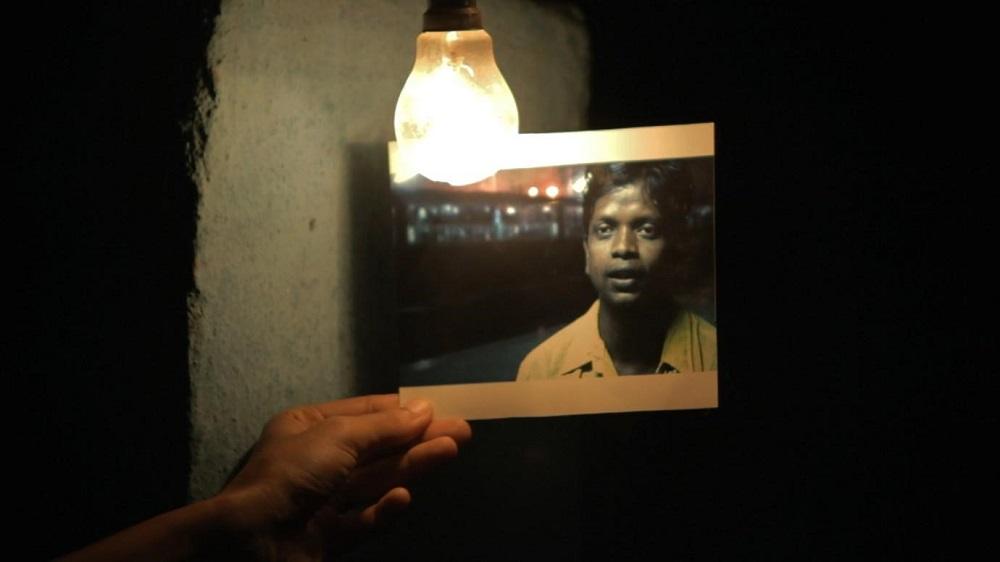
Ekta Mittal is the co-founder of Maraa, a media and arts collective in Bengaluru, where she works as a researcher, practitioner and filmmaker focusing on the themes of gender, labour and caste in rural and urban spaces across India. For the project Behind the Tin Sheets, an umbrella project, she made a series of films (with Yashaswini Raghunandan) that explored the lives of migrant labourers engaged with the construction of the new Bengaluru Metro. Her feature documentary Birha and subsequently, Gumnaam Din (Missing Days), also continue along similar thematic terrains but deepen her engagement with the emotional and poetic layers implied in the otherwise ethnographic essays on labour we are so used to watching.
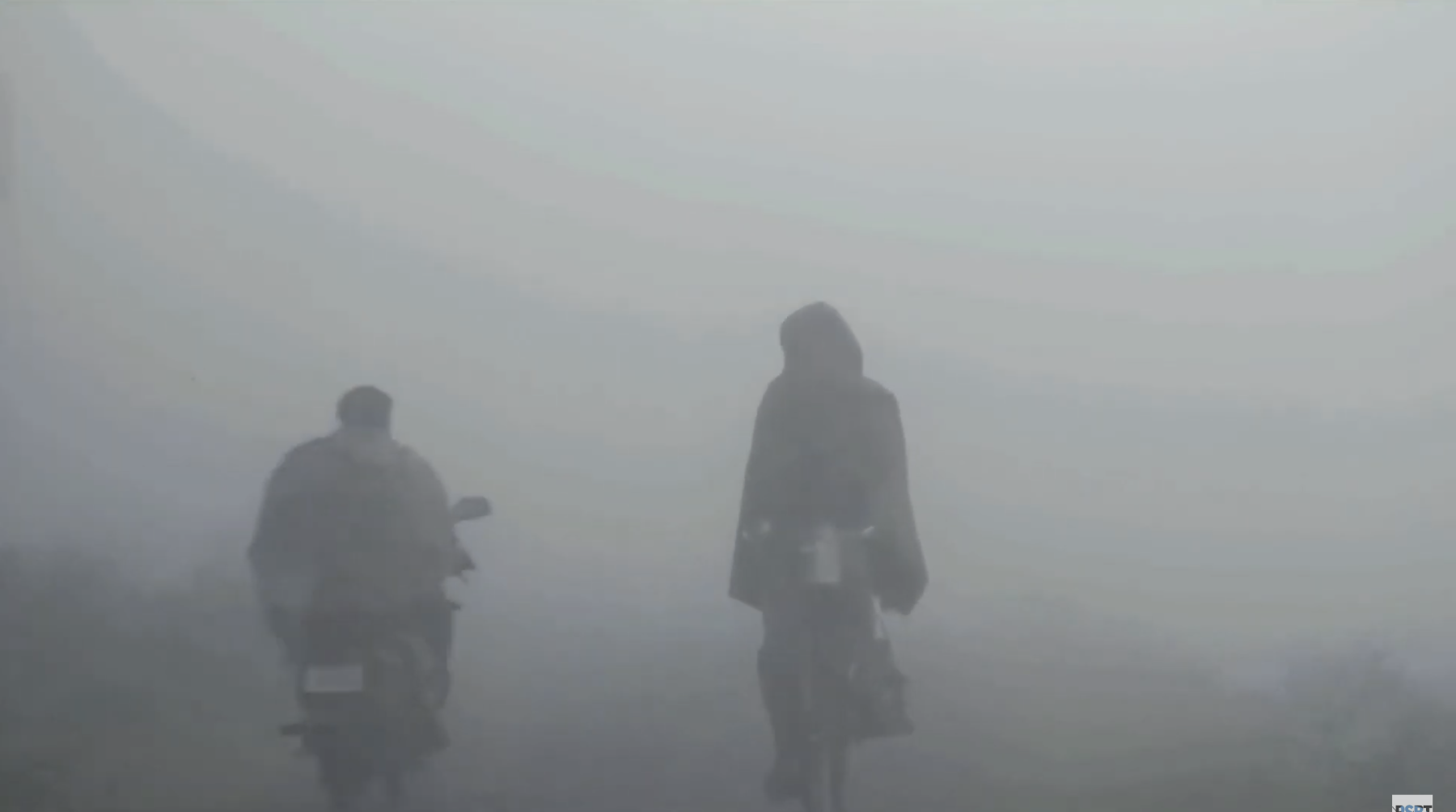
Outside the stream of data and hypervisible melodramas that frame the stories of migrant labour in India—which reached a fever-pitch of saturation during the early days of the COVID-19-induced lockdown in 2020—Gumnaam Din attempts to restore some dignity to their narratives of searching and failure, even as they are haunted by the spectre of disappearance. Her inspiration, as in Biraha, is the work of the famous Punjabi poet Shiv Kumar Batalvi whose moods and images have directly inspired the atmosphere of Mittal’s meditative film.
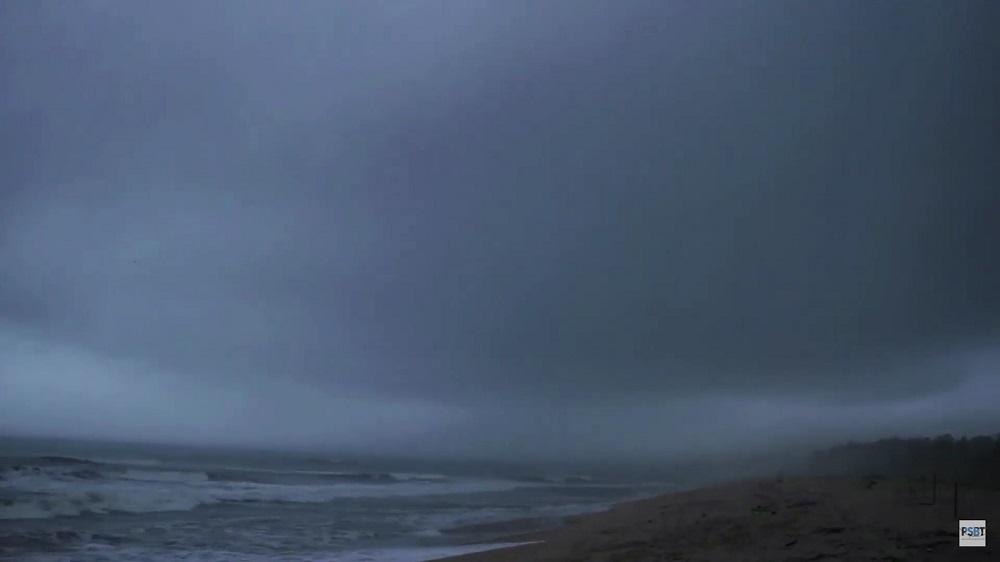
A migrant worker, Surender Meenj, goes missing far away from his home. Mittal’s film attempts to trace the journey he would have made from his home, asking people along the way if they knew anything about the man in a photograph she shows them. Mittal’s film inserts elaborate forms by which separation, or loss, is mourned and remembered across swathes of rural India. At times they are formally contained by performances of grief—as we see two women wailing while embracing each other. But the sound design is discordant and excessive during the sequence, propelling their crying to a din, seeping out of the frame uncomfortably for the viewer. Gendered representations of longing in which solitary women are decked with jewellery and cast in modes of waiting or pensive reflection are mingled with ironic sequences, such as the one where Meenj’s voice is artificially created to narrate his own missing person’s notice. We also hear from another worker talking about his dreams of money and a stable home, which forever eludes his grasp. Migrancy and poetry feed into each other, giving us an unstable map of their emotional landscape.
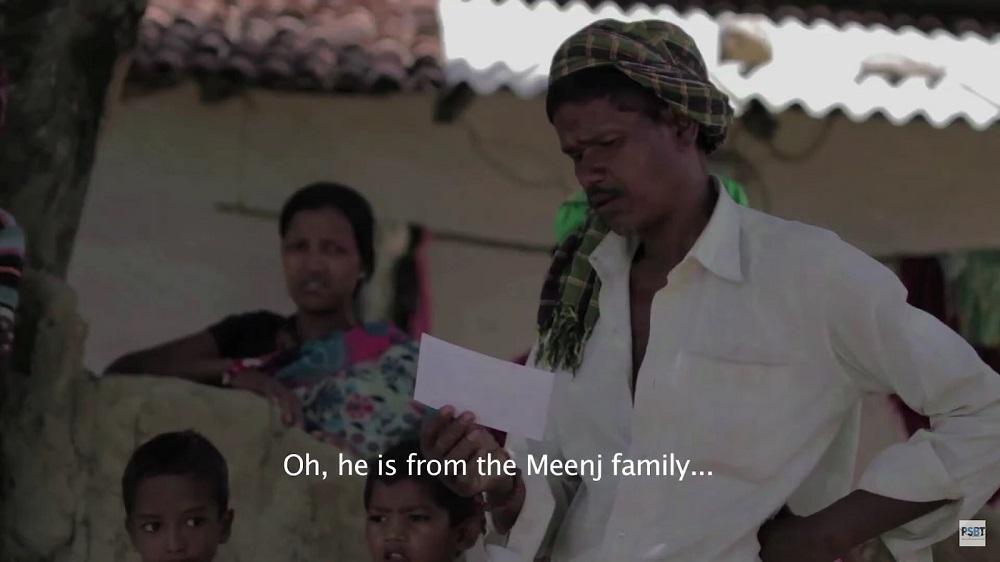
Mittal focuses on the labour that is expended on waiting as well, as the family members of the missing labourers go about their day and their work, clinging to hope but losing the threads of speech or memory that tied them to the missing person in the first place. The poetry of migrancy highlights not just the precarity of migrant labour but the physical impact that their loss presents upon the rural landscape of India as well. Migrant labour may not leave any clear footprints, as Batalvi’s poem also suggests, but their traces are felt in language, in the bodies of the men and women they leave behind and the ecology that is disrupted by their loss.
Gumnaam Din/Missing Days
By Shiv Kumar Batlavi
My days of gloom have come again
The days of notoriety are here
It was not for people to be with me
Even my shadows have left me.
Yes, even my blood is sorrowful now.
Yes, even my flesh is sorrowful now.
Every direction was filled with gloomy thoughts
or the humiliating laughter of friends.
There was a journey…
there was sand, there was silence
there was humiliation, there was dread, there was disgrace
there was emptiness, there was horizon, there was the sun
or there was nothing but
the trail of my footprints.
Seeing all of this,
a mind can only grow cold.
A life
that traversed the hot desert of age
carrying the burden of sorrow
and yearned for a sip of shade.
But in my sight,
there was not even an trace of a tree
I cry a lot
on my murder
I wander around
with a cursed silence
and I cover my face
under the gloomy sheets of moonlight
in the sands of imaginations
I sleep deep.
I have seen this in the journey of silence
that silence sings
silence cries, silence wails
and silence speaks
a beautiful language.
From the silence of desert sand,
I am learning the language
To the lost moonlight,
I write letters in sand.
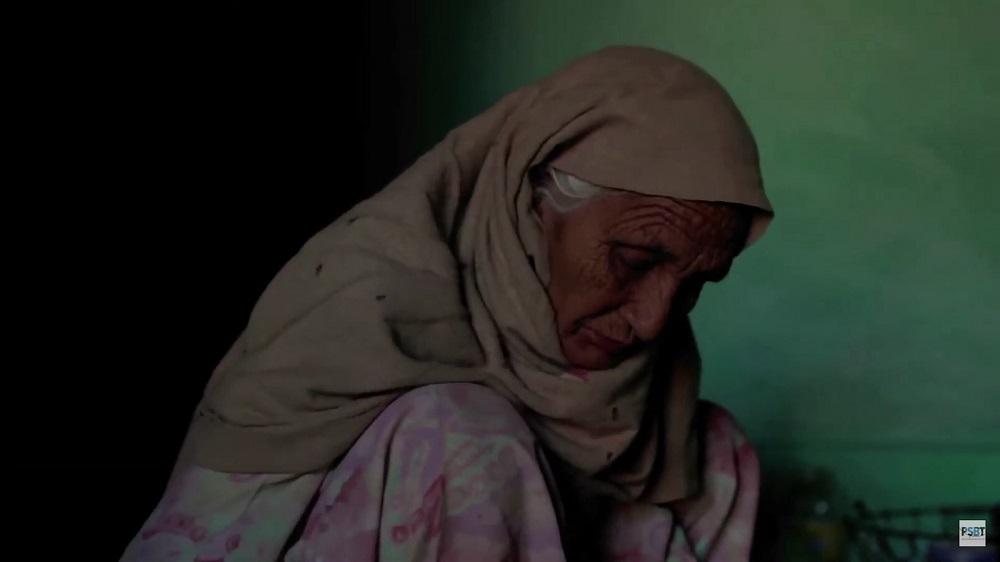
All images from Gumnaam Din by Ekta Mittal. 2019.




